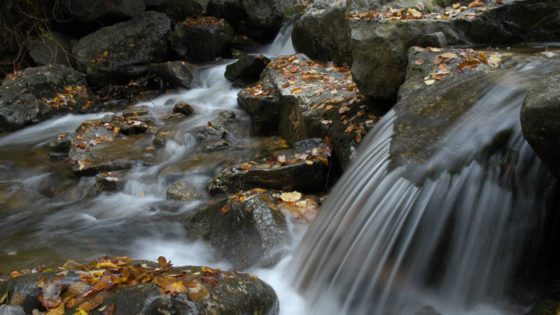By Lamonte Garber and Diane Huskinson
Stroud Water Research Center is pleased to congratulate Brubaker Farms on receiving the Pennsylvania Leopold Conservation Award. The $10,000 award is given in honor of renowned conservationist Aldo Leopold to farmers, ranchers, and forestland owners for their care of land, water, and wildlife habitat. It is presented annually by Sand County Foundation, American Farmland Trust, The Heinz Endowments, and the Pennsylvania Farm Bureau.
Lamonte Garber, the Stroud Center’s watershed restoration coordinator, said, “We were pleased to be able to offer an enthusiastic letter of support for the Brubaker nomination. The Stroud Center had the good fortune to work with the Brubakers on some of their many measures to protect water quality, including manure management, fencing to keep cows out of Donegal Creek, and the planting of streamside forest buffers on multiple parcels.”
Beginning in 2015, the Stroud Center and partners helped the Brubakers complete water quality projects on their farm in Lancaster County, Pennsylvania, through the Stroud Center’s Farm Stewardship Program. The program connects landowners with resources and support to implement practices aimed at protecting healthy soil and clean fresh water. Partners included TeamAg, Inc., the USDA Farm Service Agency’s Conservation Reserve Enhancement Program, and the Chesapeake Bay Foundation. The National Fish and Wildlife Foundation provided additional funding.
The Brubakers made other improvements to their farm in partnership with the USDA Natural Resources Conservation Service.
One of the most important enhancements they made to benefit local water quality included the planting of over 900 trees and shrubs along the stream, further enhancing and protecting an already thriving trout fishery. Trees reduce the amount of pollution that enters streams, provide cooling shade, and create habitat and a food source for aquatic life in the form of falling leaves and woody debris.
“Because of their scale and impact,” said Garber, “farms represent the lion’s share of the Stroud Center’s watershed restoration work, which draws from the work of our scientists to identify effective solutions and determine how to best implement them. Our watershed restoration is informed by science and powered by farmers.”



